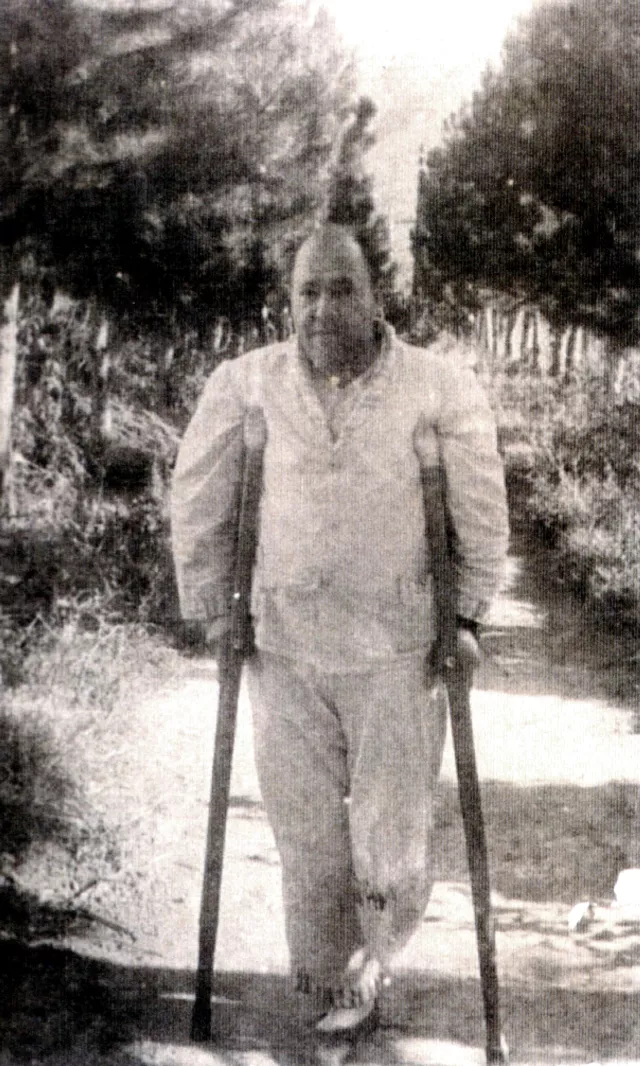Seraphima Gurevich's father, Naum Gurevich
This is a photo of my father, Naum Gurevich, taken in 1943 in the park of the military hospital in Alma-Ata, where he was staying after he was wounded at the front and had to have his leg amputated. This was the first time my father went out with crutches.
My father was a professional military before the war. He moved from one military unit to another. Just before the war he was the head of the South-Eastern Railroad Human Resources Department. My father was not subject to recruitment into the army; he was a railroad man, and railroad men had to provide for the continuous operation of the railroads. However, my father went to the military recruitment office every day, insisting that they send him to the front. Shortly after we left to evacuation, my father volunteered to the front. He became a battalion commissar.
When the war broke out, my grandmother from Polonnoye joined us in Voronezh. My mother's sister Bronia, her husband and son also came to us in Voronezh. Then one of my first cousins, the son of my mother's sister Riva, also joined us and all of us were evacuated together. We were evacuated to Kazarink in Middle Asia. In 1942 the Germans retreated from Voronezh and we were allowed to go home. At the beginning of 1943 the Germans began to attack again and we had to evacuate yet again. We went to Kazakhstan.
On the way, one of several little miracles occurred. At a small station where the train stopped a military hospital boarded. My mother always asked people from the front whether they had seen my father. Some patients who were walking near the train told us that my father was on this train. He had been severely wounded at the front. He had had his leg amputated. This hospital train was headed for Alma-Ata and we were allowed to go with them.
My father was taken to hospital. The conditions in the hospital were terrible: there was shortage of medical personnel, medications and food. The doctors were happy when relatives came to take care of their patients, because they also helped the other patients. My mother stayed beside my father all the time. My grandmother and Bronia cooked for him. My father had had his leg amputated up to his knee on the sanitary train. In the hospital in Alma-Ata gangrene began in his stump and he had to have his leg amputated up to his hip. He had to walk with crutches for the rest of his life. If it hadn't been for my mother taking care of him he wouldn't have survived. He had sepsis after surgery and we didn't know whether he would survive. Another miracle was that my father survived. We received food coupons as the family of a war invalid, but we could get very little food for them. My mother did some work in this hospital to earn some money.












